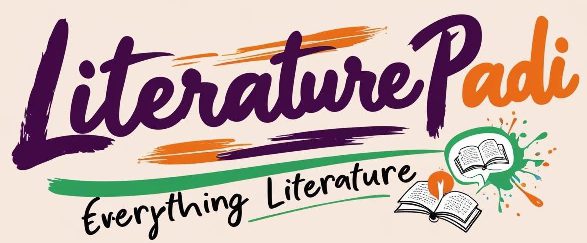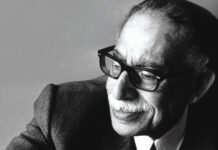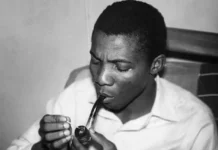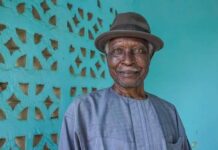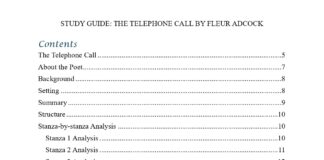Ace Literature-in-English this exam season with our SSCE Study Guide Bundle. 14 exam-ready guides worth over ₦25,000 now available for ₦10,000. Limited offer, 4th–15th February.
Further Details Here
Shaaban Robert (1909–1962) was one of the most revered literary figures in East African history.
Born in Tanga, in the former Tanganyika (now part of Tanzania), Robert’s contributions to Swahili literature helped shape the cultural and ideological foundations of modern Tanzania.
Shaaban Robert was widely celebrated as the father of the modern Swahili novel. He was a poet, essayist, biographer, and a national thinker whose works championed freedom, justice, and human dignity.
His deep pride in Swahili language and culture, as well as his appreciation for other global cultures, positioned him as both a nationalist and a pan-humanist.
Robert was born to Yao parents from Malawi. Colonial policies restricted his formal education and career growth. He spent most of his working life as a civil servant, often in clerical roles, but his creative output was prolific and transformative.
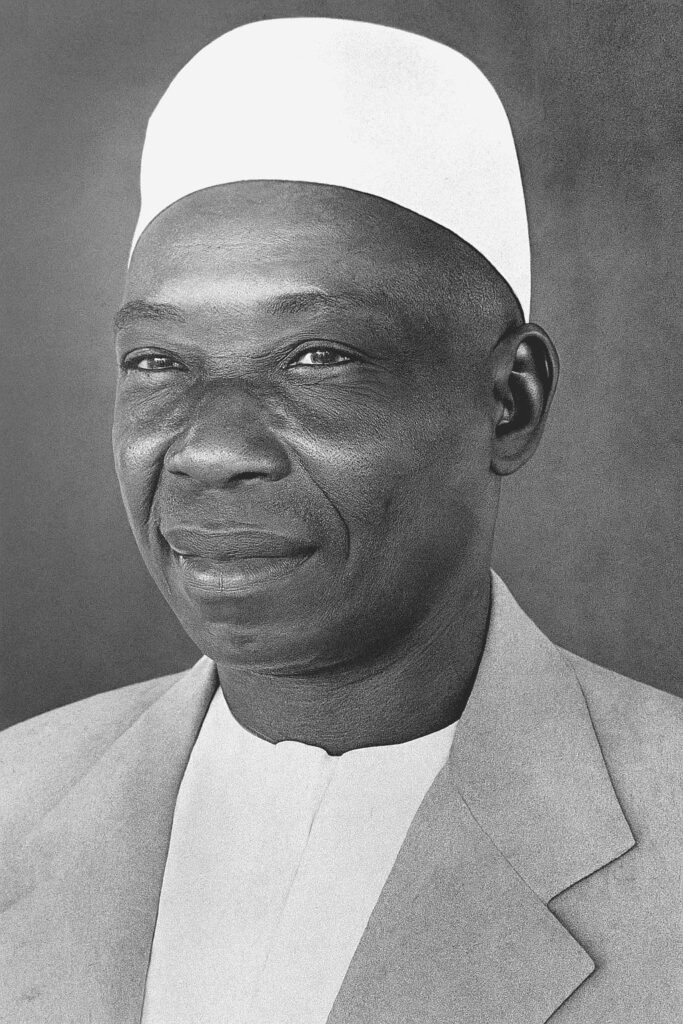
A Champion of Swahili Literature
Robert’s legacy is rooted in his profound contribution to Swahili prose and poetry.
His works remain part of the Tanzanian school curriculum, and he is studied across East Africa as an essential literary figure.
His mastery of classical Swahili poetic forms, combined with innovative narrative techniques, laid the groundwork for what is now known as the modern Swahili novel.
Some of his most significant poetic works include:
- Utenzi wa Vita vya Uhuru (The Epic of the Struggle for Independence, 1961)
- Pambo ya Lugha (A Question of Language, 1966)
And among his novels and prose fiction, these stand out as milestones:
- Kusadikika (Believing, 1951)
- Adili na Nduguze (Adili and His Brothers, 1952)
- Kufikirika (Understanding, 1967)
- Utubora Mkulima (Utubora the Farmer, 1968)
Some of these works were published posthumously. They depict his commitment to moral instruction, social justice, and human rights, which echo the wisdom and didacticism of African folktales, yet delivered with the depth and structure of the European-style novel.
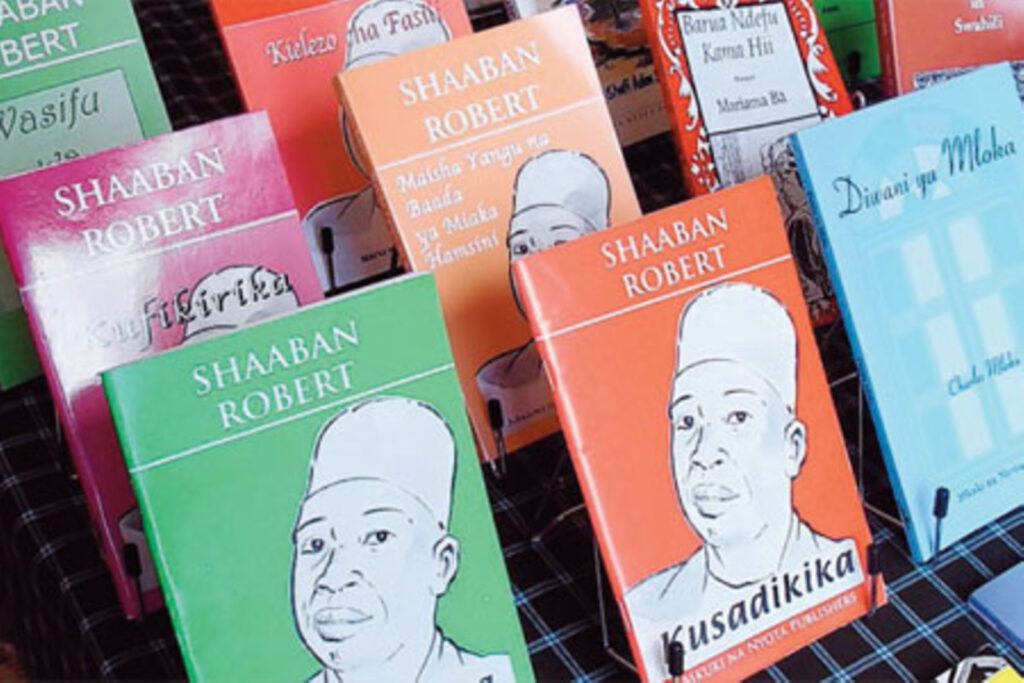
Poetry with Purpose
Shaaban Robert’s poetic voice is both musical and moral. He embraced the traditional Swahili poetic forms, such as utenzi, but reworked them to comment on modern social and political themes.
His works often explore issues like colonialism, gender inequality, and social exploitation, topics rarely addressed in the poetic traditions of his time.
He was deeply attuned to the condition of women. He celebrated their strength in his verses and prose.
Notably, he penned a biography of Siti Binti Saad, the pioneering female taarab singer. He documented her rise in a patriarchal society as a metaphor for resilience and cultural pride.
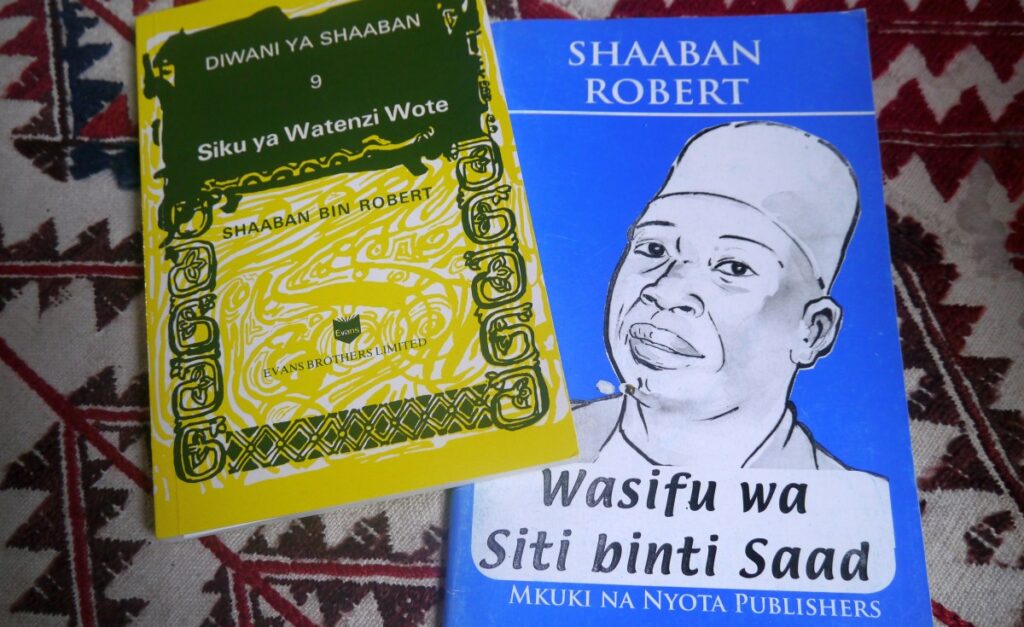
Literary Style
Robert’s prose is distinguished by dense descriptive language, reflective moral commentary, allegorical storytelling, and nationalist and humanist themes.
Though his style retained an oral storytelling sensibility, it also incorporated literary techniques common in global literature.
His admiration for William Shakespeare, whom he called “a great ocean whose waves touch the shores of the whole world,” hints at his global literary outlook.
Robert also made literary history by translating Omar Khayyam’s Rubaiyat into Swahili, an extraordinary feat that distinguished his command of language and literary imagination.
Legacy
Shaaban Robert’s literary and philosophical outlook significantly shaped post-independence Tanzania.
His ideals aligned with President Julius Nyerere’s Ujamaa (African socialism) policies. He advocated for an egalitarian and culturally rooted society.
His dream of a harmonious society (that bridges faiths, cultures, and classes) remains a touchstone in Tanzanian national identity.
His contributions were so profound that schools and institutions were named after him. One such institution is the Shaaban Robert Secondary School in Dar es Salaam.
Receive Literary Updates through our Social Media Channels:
- WhatsApp: Literature PADI
- Telegram: Literature PADI
- YouTube: @literaturepadi
- Facebook: Literature PADI
